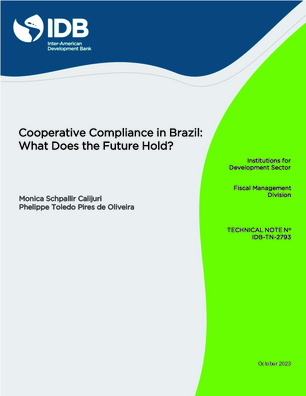Cooperative Compliance in Brazil: What Does the Future Hold?
Date
Oct 2023
The concept of cooperative compliance has gained momentum in recent years as tax authorities seek to establish more collaborative relationships with taxpayers, especially in member countries of the Organisation for Economic Co-operation and Development (OECD). The subject had not arisen with the same interest in Latin America and the Caribbean. Brazil, in particular, has been cautious in its approach to cooperative compliance after a timid attempt some years ago. However, this has been changing since the launch of the Confia pilot program in 2021, where the Brazilian Federal Revenue (RFB) is collaborating with a group of large taxpayers participating in the pilot. Confia's main objective is to develop a relationship of trust between tax authorities and taxpayers by promoting a culture of compliance based on cooperation and transparency. This paper highlights the benefits of cooperative compliance including improved relationships between tax authorities and taxpayers, greater tax certainty, and reduced compliance and litigation costs. These benefits can help make Brazilian companies more competitive globally and improve risk assessments for tax administrations. Some initiatives taken by Brazilian tax authorities to enhance their relationship with taxpayers, including the experience of the RFB with Confia, could provide valuable lessons for other Latin American and Caribbean countries.




